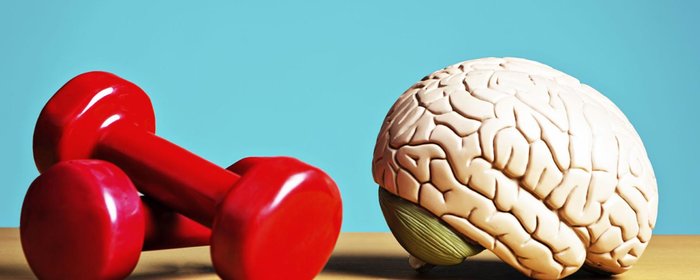Ways of exercising smarter

Consider this: children who walk to school concentrate better and get better test results; older people who enjoy mild exercise are half as likely to suffer from cognitive impairments
It’s thought that the extra blood supply to the brain promotes the growth of neurons and encourages the release of certain neurotransmitters and growth hormones that are crucial to the brain’s overall health.
2. The psychology of workout music
Which songs get you pumped up for working out? Many of us think exercising to music helps to reduce effort and increase endurance. Why does music have this effect? The answer lies in our brains, not in our muscles, says Tom Stafford in his article on the subject.
The effect seems to be most pronounced for self-paced exercises – running or rowing rather than team sports. The area of the brain that signals the movement of muscles is called the motor cortex. This is where we plan to make movements and it’s especially critical for the timing of actions.
The signal from our music travels down our auditory pathways to the supplementary motor area where, says Stafford, the rhythm of the music may help with the process of timing our actions.
3. Are cramps caused by a lack of salt?
The cause of cramps is something of a mystery. Because they are so difficult to predict, trying to cause one in a lab is not easy, so most studies look at real-life observations.
Studies on American footballers show that cramps are more likely to happen in hot weather, which fits with the theory that they are caused by low salt levels, lost through sweat. The problem with this is that athletes in cold climates get cramp too.
Another study on South African ultra-marathon runners found little difference in sodium levels between athletes that cramped up and those that didn’t. The advice if you are suffering from cramp is to stretch it out. There’s no need to increase levels of sodium.
4. Is stretching before and after exercise necessary?
We’re often told that stretching our muscles is the best way to avoid aching limbs the following day or injuries during sport. But is this true?
Two studies have both pointed towards an answer: not really. In this article by Claudia Hammond, Rob Herbert from the George Institute in Australia – the author of one of the two reviews – told us that if you enjoy stretching before exercise, you’re fine to carry on, but it probably won`t help much. All the evidence points towards little difference in muscle recovery or injury prevention.
5. Do special running shoes prevent injury?
If you’re a keen runner you might have been fitted for personalised running shoes. For this you probably had to run in front of a shop assistant while they told you how much you “pronate” (turn your foot inwards on impact with the floor). But does it matter?
The evidence for the benefits of specialised footwear is so sparse that some consider it a myth. Surprisingly, even the evidence that running on hard surfaces leads to more injuries is weak. But footwear manufacturers will still try to make shoes with claims of better support and injury prevention.
6. Will we ever run 100m in under nine seconds?
If you`re a more determined athlete, you might want to set yourself an ambitious target. But what are the limits of human capability? Ed Yong explored this for us, and unsurprisingly found it a difficult question to answer.
For most runners, speed is largely determined by how much force they can apply when their foot is on the ground, so there are two options for increasing speed; hit the ground harder or exert the same force for a longer period. Studies show that the calf muscles more than any other determine the amount of force that runners apply to the ground.
People are getting faster but in unpredictable ways. Current estimates show that we’ve yet to reach the ceiling of human speed.
7. Does exercise really help with depression?
The best evidence for the effect of exercise on mood comes from one of the largest meta-analyses of data analysed by Cochrane. They looked at data from 30 trials in countries as diverse as Thailand, Denmark and Australia and came to the conclusion that on the whole exercise might have benefits for people suffering from depression, but the effect is very, very small. It’s certainly not the panacea some claim it to be.























-1745485667.jpg&h=190&w=280&zc=1&q=100)























